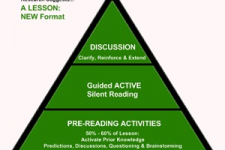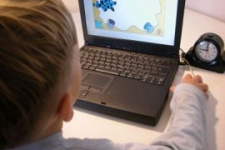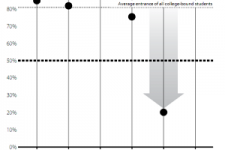Understanding & Recognizing Oppositional Defiant Disorder in the Classroom
A child who, beyond all understanding, refuses to cooperate in all likeliness has a condition known as Oppositional Defiant Disorder (ODD). Some of the symptoms or signs to recognize Oppositional Defiant Disorder in the classroom are as follows.
Negative, hostile, defiant; will not comply with requests made by adults
Persistent arguing with adults; belligerent, obstinate
Intense […]
The Importance of Pre-reading Activities

Recent research brought to light a new lesson format that gave due importance to pre-reading activities. It was found that what is done before reading, is very beneficial for understanding the text. This preparation work is what helps students get connect the new information to what they already know.
This new format suggests that […]
Creating a Student Acceptable Use Policy

The purpose of an Acceptable Use Policy (AUP) is to communicate in clear language how a district’s computer and network resources are to be used so that the environment is safe, secure and reliable.
It is recommended to have both a staff and student Acceptable Use Policy as there should be differences in the […]
Defining Phonemic Awareness Skills

Many students who seem bright actually struggle with reading. When tested, most of their cognitive skills test high — except for one: phonemic awareness skills. Phonemic awareness is the ability to blend, segment, and manipulate sounds.
It is essential to keep an eye on the student’s spelling and reading skills. These signs can indicate […]
Intuitive Learning Style vs. Sensate Learning Style

The Four Dimensions of Learning are about how we relate to the world, make sense of ideas, make decisions and manage life in general. The Sensate learning style and Intuitive learning style are about how the subject takes in information and makes sense of ideas.
This area has much to do with preferences in […]
Compacting Curriculum for Gifted Learners

Sometimes it is necessary to spell things out. When students object to the fact that the teacher has different expectations for different students, it is time to talk about what it means to be unique.
What is “fair?” Is it okay for the gifted students to not have to do all the work required […]
Autism in Children: Physical Development

Autism in children may cause physical delays. Some people with autism have serious digestive issues. Physical development is the foundation for neuro-development.
Changes in the lower brain like the cerebellum affect balance and coordination. The muscle tone of children with autism may also be different from that of typical students. Most of the time, […]
Formal Learning and Informal Learning

Learning can occur outside of school and even unrelated to school work. Quite often it is this learning type that tends to remain etched in the memory of the child for a long time. It is therefore important to have a perfect blend of formal and informal learning.
Jay Cross, the originator of the […]





